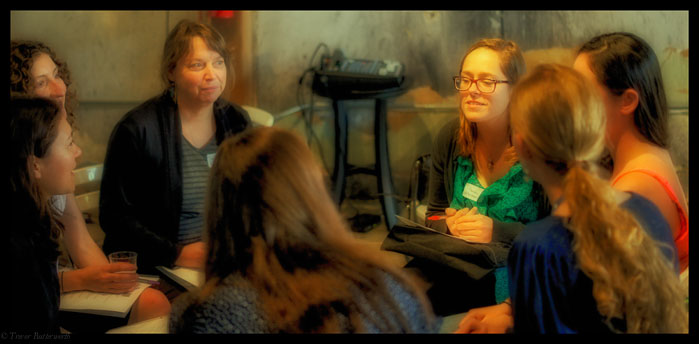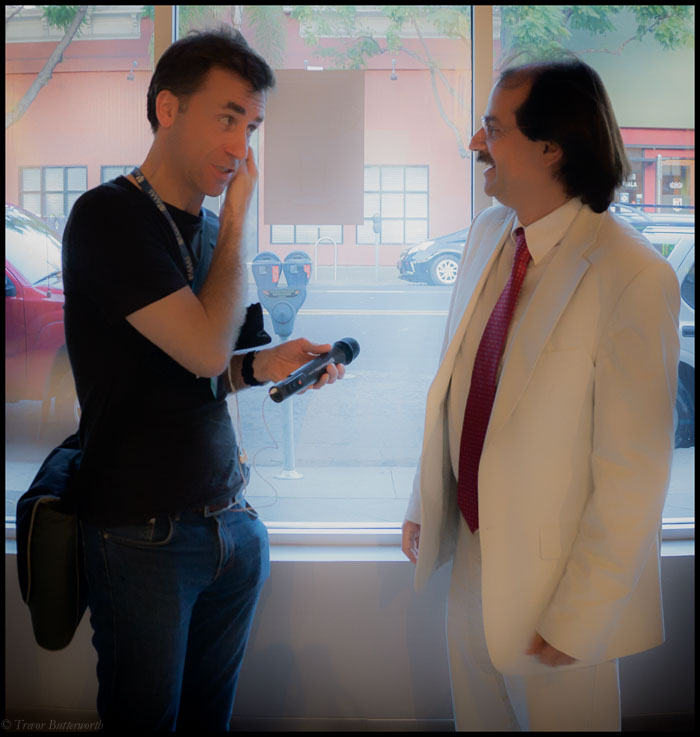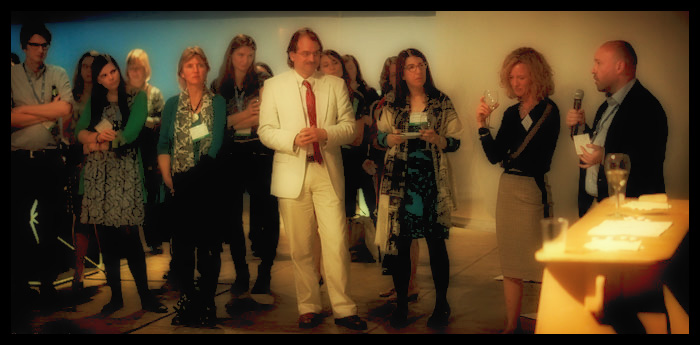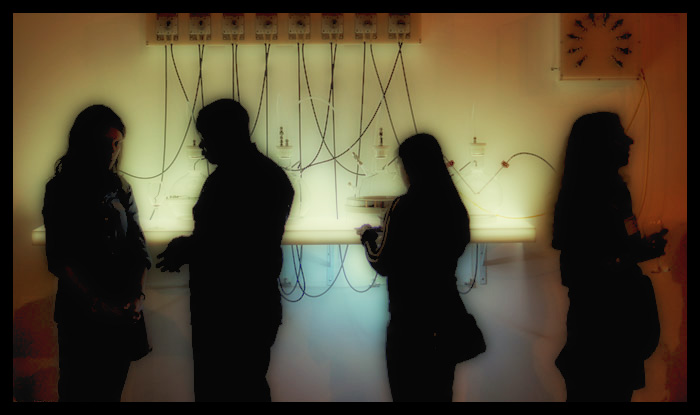Asking for Evidence at AAAS with John Ioannidis
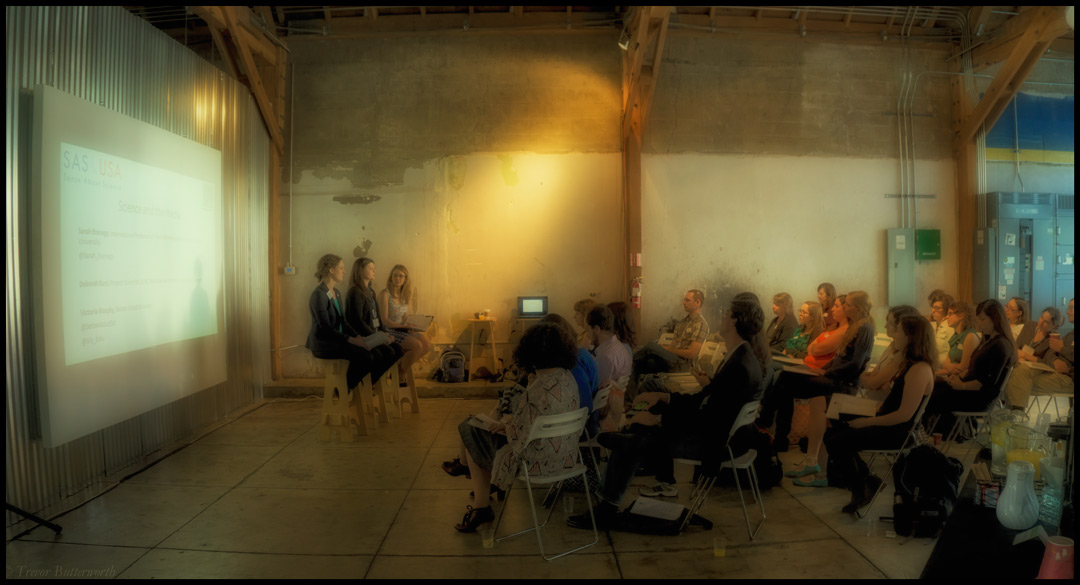
The “Senses” took over Zero1 Gallery in downtown San Jose on the afternoon of Friday, February 13, for a mini-media workshop for early career researchers on the importance of science communication and how to engage with the public. Guest speakers were Sarah Evanega Davidson, Professor of Plant Breeding and Genetics from Cornell University’s Alliance for Science, Deborah Bard, Project Scientist at the National Accelerator Laboratory at Stanford, Seth Borenstein, senior science writer at Associated Press, and Monya Baker, an editor at Nature.
We heard tips on how to talk to journalists—for instance, on how to give context and to make sure to explain why the question you are asking in your research is worth asking, said Baker. And we heard from our attendees about their concerns over miscommunication: one student explained how a news story misreported that he had created a Neanderthal mouse through his research.
There was a lot to cram in (and, sadly, leave out) in the two-hour workshop, which normally takes up a full day of panelists and discussions; but the feedback was reassuring: “The workshop was really interesting,” said one PhD student. “It was very valuable to hear different viewpoints regarding the presentation of scientific results to a more general audience.”
As evening approached, the workshop dissolved and the participants slowly merged with the gathering throngs for our launch event at which the mother ship (Sense About Science) would introduce the colony (Sense About Science USA).
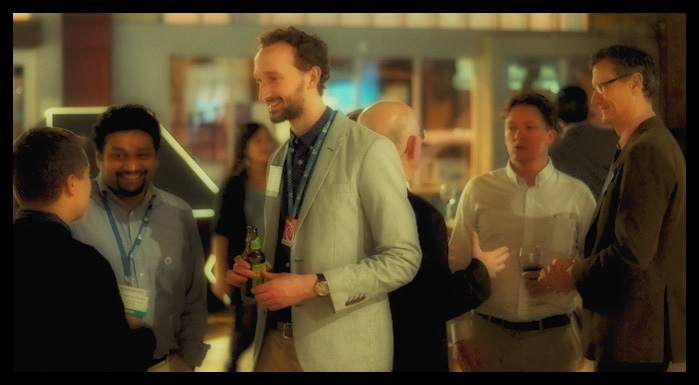
They blinded each other with science: #old enough to remember Thomas Dolby.
As drinks and food emerged, we witnessed the arrival of the very dapper John Ioannidis, our keynote speaker, who was immediately collared by the Guardian’s Science Editor, Ian Sample for an interview.
Then it was speech time. UK director Tracey Brown introduced me to say a few words about the important of evidence and to explain how the American arm of Sense About Science came into being. In noting that one of the US branch’s particular interests was the importance of statistical literacy to understanding evidence, it was a quick segue to John Ioannidis, who has sparked a revolution in science with analyses that call for better statistical reporting and, as he put it, “new experimental methods.”
The tragedy of the evening was that it ended so soon and there were so many interesting people—many with spirits raised by the thrill of summer-like weather in February—to talk to. But the Senses were off—to discuss and debate more scientific issues over a dinner sponsored by Elsevier with more superbly stimulating people, such as Elisabeth Lorns, William Gunn, and Anita de Waard (who were at my table).
Zero1, John Ioannidis, Elsevier, San Jose—all our speakers and guests—thank you for being such fine hosts and good company!

